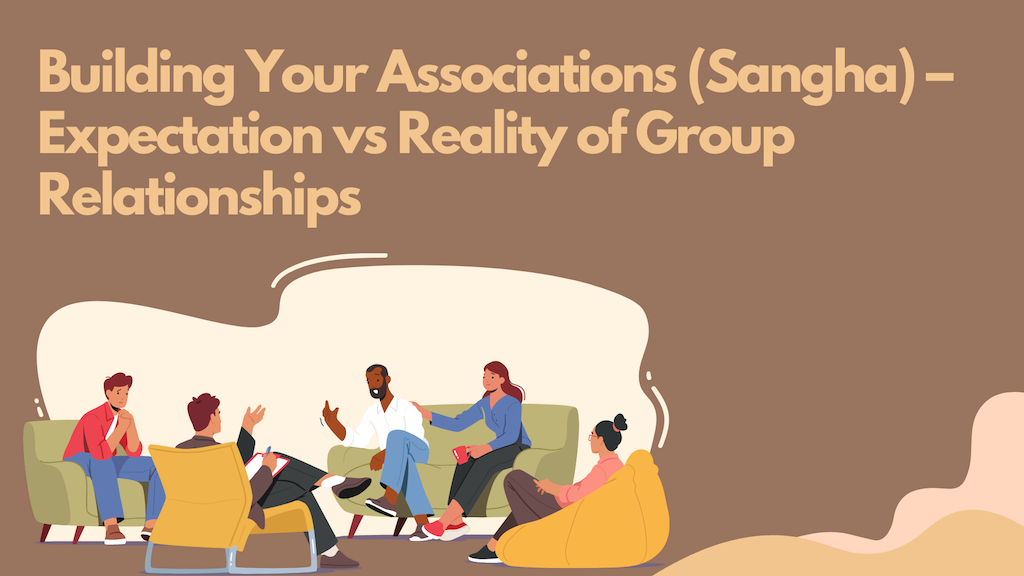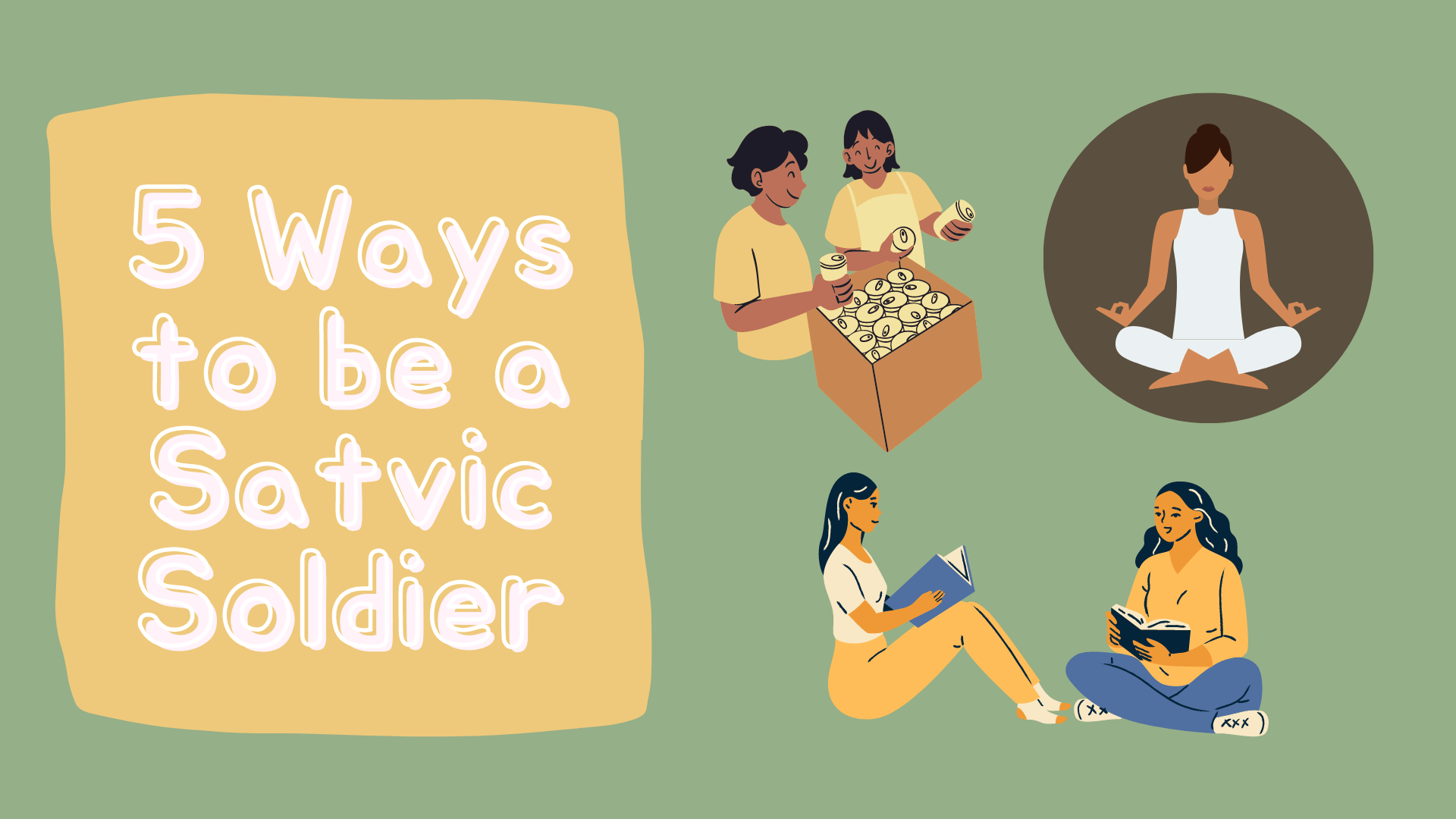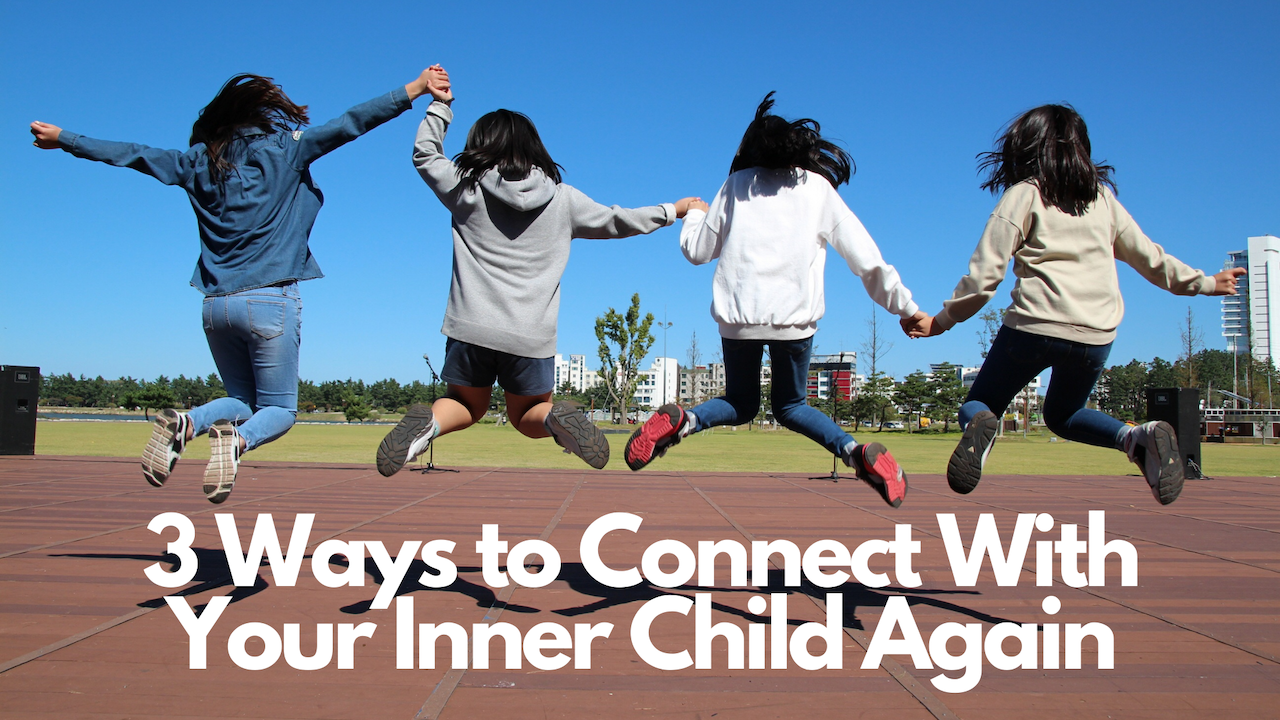You are the average of the five people you spend the most time with.
Jim rohn
What do you think about this quote? Let’s put it to the test. Make a note of the five people you spend the most time with. It could include your family, friends, or co-workers. Think about their individual strengths and weaknesses and see how much you really have in common with them. Surprised? That’s only because your relationships were happening subconsciously.
However, consciously or subconsciously, our association is what deeply shapes our behaviour.
When we build our association consciously for our inner and outer growth, we’re building a Sangha. Now what is a Sangha? A Sangha is simply the Sanskrit word for association. And when it’s built in the spirit of empowerment and pursuing truth (Sat), it becomes a Satsangha.

We all have our fantasy about what such an association would look like and how it could change our life. But first, let’s set our expectations aside and understand what it really takes to build your own Sangha.
1. EXPECTATION: You’ll know right away if they belong with you.
REALITY: Let ‘love at first sight’ relationships be limited to the silver screen. Don’t get carried away hoping for fireworks when you meet someone for the first time, especially if you’re building your Sangha.

One Zoom meeting or one potluck lunch with people who share your interest is not going to help you build a community overnight.
You have to invest in meeting regularly and check in with each other to share your challenges, goals and victories. In the first meeting, most of us find it hard to even remember a name or feel comfortable enough to share our true selves with others.
One of the best ways to patiently invest in group relationships is to take up a shared activity. It could be signing up for a yoga class, volunteering to serve food at a temple, doing a workshop together, or working out together.

Ritual is an essential building block for a connection. For most of our childhood friends, just the shared ritual of meeting up at the playground every evening was the glue that kept everyone together. If you don’t replace it with a ritual that everyone can agree on, then it’ll be harder to keep everyone connected.
2. EXPECTATION: Everyone must share the same passions and interests to have healthy relationships.
REALITY: Treasuring the same values for your character development is more important than having common interests.
Finding a group that shares your passions is only the beginning of building your Sangha. It’s not the glue that makes you all stick together. It doesn’t mean you can’t let in someone who may have different interests. After all, interests may get more interesting or boring over time for each of us. However, what matters more are the core character values that you want to build your life around. Sharing purpose and a vision for growth is the glue that is needed to build your Sangha.

What does that look like? Let’s say you just finished a Health Transformation Workshop and found a couple of friends from your own city. You decide to partner up with a friend who wants to lose five kilos in the next 21 days.
For the next 21 days, you both have a clear and defined short-term goal – losing weight. After 21 days, you both successfully make it too. But you both struggle to keep in touch and build your relationship from that point onwards. Why? Because you had a deeper commitment to become a healthy person while your partner was mainly interested in fitting into a wedding dress after a month.
If you had a partner who shared the same long-term vision for his health like you, it wouldn’t matter whether they prefer doing it through bicycling or changing their diet. You both would have something to learn from each other through such relationships.
3. EXPECTATION: Everyone has to agree with you/You have to agree with everyone in your relationships.
REALITY: You may be looking for a YES man for your personal fan club rather than building a Sangha if that’s how you feel. Being friendly doesn’t mean being 100% agreeable. In fact, you’re unintentionally playing an enemy in each other’s lives if you’re doing that. For instance, what should you do if your friend has been suffering from acidity, but refuses to cut down her tea consumption by claiming her love for it? Should you blindly agree or give your friend a reality check?

Openness and honesty are far more important than agreement in healthy relationships. The key is to make it clear that your Sangha is a space of collaboration, not competition. Each member must share the responsibility to keep each other on track with our growth.
There’s no room for fault finding or empty praises. However, developing a healthy feedback approach without judgment is what everyone in the group must learn to prioritize. Let’s say one of your members has been turning up late for the meetings you’ve hosted in the past 3-4 weeks.

What happens if you simply yell at them for disrespecting your relationships and not valuing your time? Sure, you may intimidate them, but they’re only going to distance themselves away from your group eventually. Try rephrasing your feedback constructively like this:
“I noticed you missed the beginning of yesterday’s meeting. I was worried that you missed out on some essential details about our next event. I’d be happy to quickly review what you missed, and know if there’s something affecting your arrival at our meetings. We can figure out a plan to ensure you can make it on time and don’t miss anything.”
4. EXPECTATION: You are ready to participate, but always waiting for the invite.
REALITY: What’s the difference between a professional organization and a Sangha? You’re usually waiting for instructions from your team leaders to follow. But, a Sangha is a group where responsibility is always shared. Let’s say you loved attending a Satvic pot-luck brunch meet-up in your city. Now if you’re simply going to wait for Satvic Movement to host it, or leave it to just 1 or 2 enthusiastic members to plan it out for you, you’re giving your power away.

Secondly, it puts a lot of burden on a few people if they always have to set up, coordinate and host an event for the whole group. For instance, if you want to organize more potluck brunch meet-ups, your Sangha members should distribute the responsibilities evenly. You can assign one person to create and share the menu. One person can invite group members and coordinate the plan with them. And each member can be assigned one dish to prepare and bring for the event. Each month, one new member can take charge of hosting the event at their home.
Responsibility is what can take your companionship from fragile to agile. The best way to approach your relationship to your Sangha members is as a volunteer. When everyone can do this proactively, you begin to appreciate each other’s contributions and well-being more deeply.
Tell us what are the qualities do you look for in a person who should be part of your Sangha. Let us know in the comments below.



